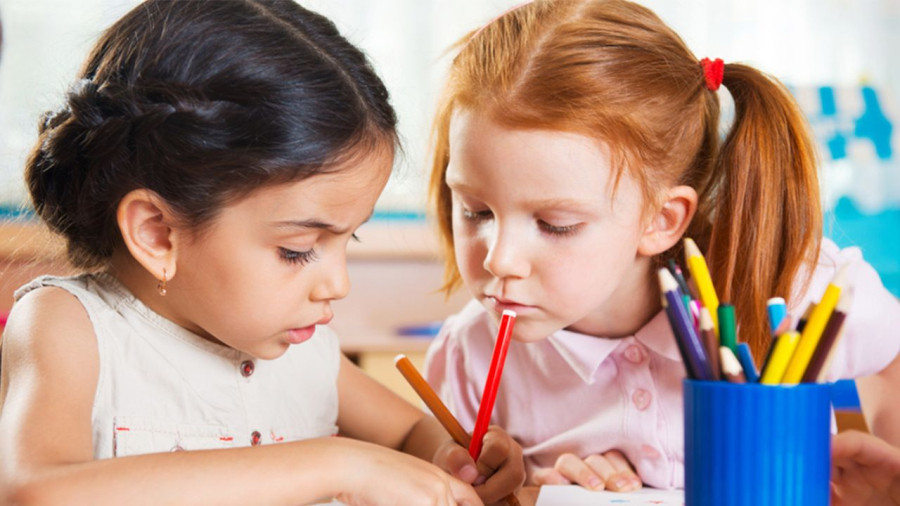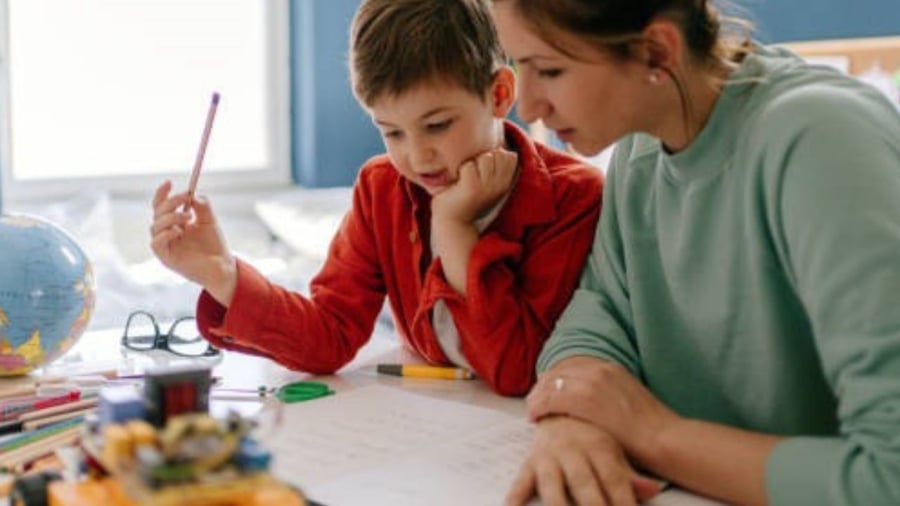Nowadays, children receive a lot of information from various sources, more than their parents’ time. Therefore, they need to know how to evaluate what they hear and see to have their own rightful beliefs. So, in this era, children need to have critical thinking in order to have a deep understanding and make the right decisions about the issues happening around them. When society has more and more information, more chaotic, children need to know how to be critical. No matter what children want to do, they need to think carefully before making decisions. Critical thinking helps children succeed in studying, working, and in relationships.

How to develop a critical thinking in children?
Some experts advise that you should practice the following things with your child, which will help develop a better critical thinking for them
Ask many questions before making decisions
Create a habit of asking questions to your child before an issue. For example, when you take your child to buy a TV, a set of clothes… ask many questions in front of your child. Ask questions to the seller. You can even turn to ask opinions about the item, about the information that the seller provides. This way gradually creates a habit for the child to ask multidimensional questions before making decisions.
Ask your child’s opinion about an issue you are concerned about
When you see your child making a decision about something, for example, why is the child wearing this set of clothes and not the other one, ask questions to your child. When the child provides information, you can ask more. That teaches the child to look back at their own choices. Asking this question encourages children to consider the reasons for their decisions. This does not make the child doubt, but teaches them how to deal with information. The child also has awareness of their own thinking, considering to make beneficial decisions.
Create opportunities for the development of critical thinking
Create opportunities for the child to see things from different perspectives. Create fun activities for children to learn and play to help them look at issues from various angles. You can let your child play puzzles, cooking, toys with diverse resources for children to choose. For example, when playing puzzles, children have to think, how to arrange the blocks into shapes or how many ways to arrange the puzzles they want. Through playing puzzles, children will have to analyze multi-dimensionally and perform their thoughts by themselves, contributing to the formation of critical thinking.
Talk to your child about advertisements
Many children like watching commercials. Talk to your child about that advertisement, what does your child think about it. See if your child completely believes in advertisements? Then ask questions, even stimulate your child to criticize the information in the advertisement, doubt the exaggeration in it.
Give your child time to think
When asking your child to do any task or answer a question, don’t make them give the answer immediately. Instead, give your child time to think. Thinking time is very important because the child needs it to consider before a series of answers or ways to perform the task. They will have to choose the most appropriate answer after analyzing all aspects of the answers.

Encourage an open-minded thinking
Teach your child how to look at everything with an open-minded spirit, teach your child how to eliminate their own judgments and assumptions about an issue or event. Tell your child about the diversity of the world. For example, when encountering a special disabled person, let your child know that the world is diverse, don’t stereotype… When you see someone eating in a way that surprises your child, tell them that they also find it delicious as the way your child eats, because each individual is different, there is no right or wrong there.
Encourage your child to develop hypotheses
While playing or talking, parents can guide the child to form various hypotheses. Developing hypotheses helps people forecast an issue in many ways, from which to form solving directions. Therefore, when the problem actually occurs, we will not be confused. For example, ask the child: “If we do this, according to you what will happen?” or “Try to predict what will happen next?”.
Encourage your child to think in a new way
Never force the child to be right like this person or that person, like this lesson or that lesson in the book. When your child gives unusual perspectives, don’t think that your child is abnormal, different, not smart. Sometimes that thought is humorous, eccentric, but it is a new way. By encouraging the child to think differently, you will help them improve their critical thinking skills and creativity. Ask questions like “What other ideas can we try?” or encourage your child to generate options by saying “Think about all possible solutions”.
A critical thinking is to find the deepest aspects of an issue. When your child has critical thinking, they will know how to analyze and doubt an event, especially when facing temptations, deception… Critical thinking is a way to make better decisions after considering the issue from many perspectives.
































